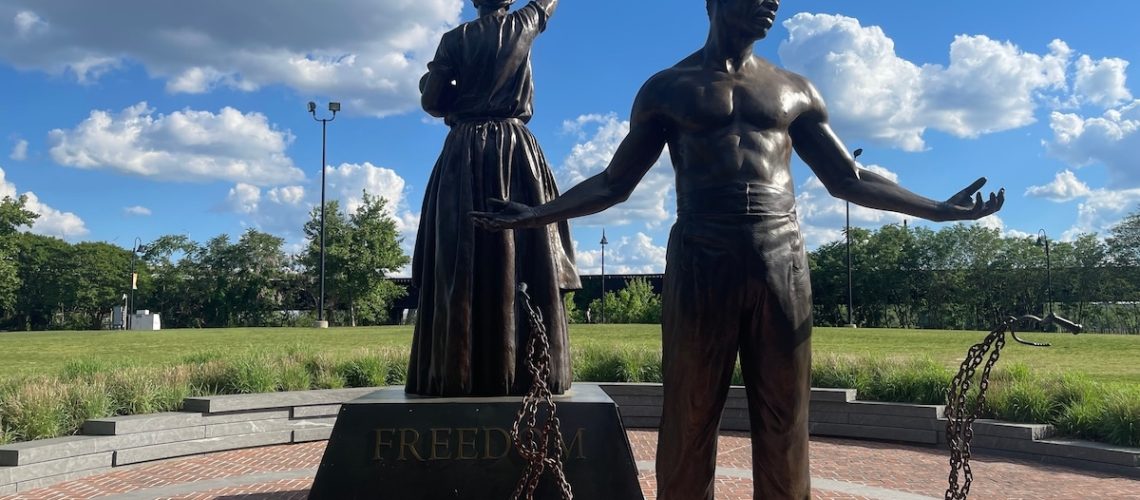America’s history is undeniably steeped in the experiences, contributions, and struggles of Black Americans. From slavery and Jim Crow to the Civil Rights Movement and ongoing systemic racism, Black history forms an essential part of the nation’s story. Yet, even in the 21st century, there is a persistent and widespread effort to deny, distort, or minimize this history. Whether through legislation, educational censorship, or cultural amnesia, the erasure of Black history remains a deeply troubling reality that hinders the country’s path toward genuine equality and understanding.
Censorship in Education
One of the most overt forms of denying Black history in America is through the suppression of its teaching in schools. States like Florida and Texas have passed laws restricting how educators can discuss race, particularly regarding the nation’s legacy of slavery and segregation. In 2022, Florida passed the so-called “Stop WOKE Act,” aimed at limiting discussions of race in classrooms and workplaces. The law specifically bans any teachings that suggest individuals are inherently racist due to their race, framing such teachings as divisive and un-American.
While proponents of these laws argue they protect children from guilt or discomfort, critics claim this is a blatant attempt to whitewash history. The removal of critical race theory (CRT) from the curriculum is part of this broader trend. Although CRT, a framework used to examine how laws and social systems perpetuate racism, is mostly taught at the graduate level, it has been misrepresented and demonized by opponents as an attempt to indoctrinate students with a view of America as inherently racist.
This sanitization of history denies young people the opportunity to understand the full scope of their country’s past. The transatlantic slave trade, Jim Crow laws, the Civil Rights Movement, and the persistent racial disparities in wealth, health, and education are key elements of American history. By omitting or downplaying these narratives, the nation effectively erases the experiences and contributions of Black Americans.
The Controversy Over Monuments
Another battleground in the fight over Black history is the debate over Confederate monuments. Many of these statues, erected during the late 19th and early 20th centuries, were part of an effort to rewrite the narrative of the Civil War. The “Lost Cause” ideology, which portrayed the Confederacy as fighting for states’ rights rather than slavery, was accompanied by the erection of monuments honoring Confederate leaders.
For years, activists have fought to remove these statues, arguing that they glorify individuals who fought to uphold slavery. Opponents claim that the removal of these monuments erases history, yet the monuments themselves are part of an attempt to rewrite history by downplaying the Confederacy’s defense of slavery. In fact, many of these statues were erected decades after the Civil War, not as historical markers but as symbols of white supremacy during the Jim Crow era.
The fight to remove these statues gained momentum after the 2017 white nationalist rally in Charlottesville, Virginia, where violence erupted over the planned removal of a statue of Confederate General Robert E. Lee. The rally highlighted how deeply some Americans are invested in preserving a sanitized version of history that erases the realities of Black suffering and oppression.
Ignoring Black Contributions
Denial of Black history also extends to the erasure or minimization of Black contributions to American culture, science, and society. From the Harlem Renaissance to the invention of the traffic signal by Garrett Morgan, Black Americans have shaped nearly every facet of American life. However, mainstream narratives often ignore or marginalize these contributions. While figures like Martin Luther King Jr. and Rosa Parks are widely celebrated, other key figures, such as Bayard Rustin, who organized the 1963 March on Washington, or Claudette Colvin, who refused to give up her bus seat months before Parks, are lesser known.
In education, textbooks often paint a picture of Black Americans solely as victims of oppression rather than as agents of change and innovation. This omission not only distorts the truth but also fails to inspire future generations of Black Americans by showing them the full extent of their community’s achievements.
The Resistance to Reparations
Reparations for slavery and systemic racism remain one of the most controversial and denied aspects of America’s reckoning with its past. Despite the wealth gap and ongoing disadvantages that stem directly from slavery and discriminatory policies like redlining, there is little political will to seriously address reparations.
A House bill, H.R. 40, which would establish a commission to study reparations, has been introduced in every session of Congress since 1989. However, it has never passed, and discussions about reparations are often met with vehement opposition. Critics argue that reparations are unfair or unnecessary, denying the generational effects of slavery and systemic racism that persist today.
Cultural Amnesia and the Myth of a Post-Racial Society
Perhaps the most insidious form of denying Black history is the myth that America is a post-racial society. The election of Barack Obama as the first Black president in 2008 led many to declare that the country had moved beyond its racist past. However, the resurgence of white nationalism, police violence against Black Americans, and voter suppression efforts aimed at communities of color reveal that racism is far from a relic of the past.
Cultural amnesia, or the refusal to engage with the full breadth of the nation’s racist history, allows these ongoing injustices to persist. It’s easier for some Americans to believe that racism is an individual problem rather than a systemic one embedded in the nation’s institutions and history.
A History Denied, A Future Delayed
By denying, distorting, and erasing Black history, America is not only doing a disservice to its Black citizens but to all its people. Without a full and honest reckoning with the past, the nation cannot move forward. Black history is American history, and to deny it is to deny the country’s true identity. Until the United States confronts its history of racism and oppression, it will remain a nation divided, unable to heal the wounds that continue to shape its present and future.
Feature photo credit: Shutterstock/ OJUP
The images used are for illustrative purposes only and may not represent the actual people or places mentioned in the article.
For transparency, this content was partly developed with AI assistance and carefully curated by an experienced editor to be informative and ensure accuracy.
- Shannon Campbellhttps://wokenpride.com/author/shannon-campbell/
- Shannon Campbellhttps://wokenpride.com/author/shannon-campbell/
- Shannon Campbellhttps://wokenpride.com/author/shannon-campbell/
- Shannon Campbellhttps://wokenpride.com/author/shannon-campbell/

